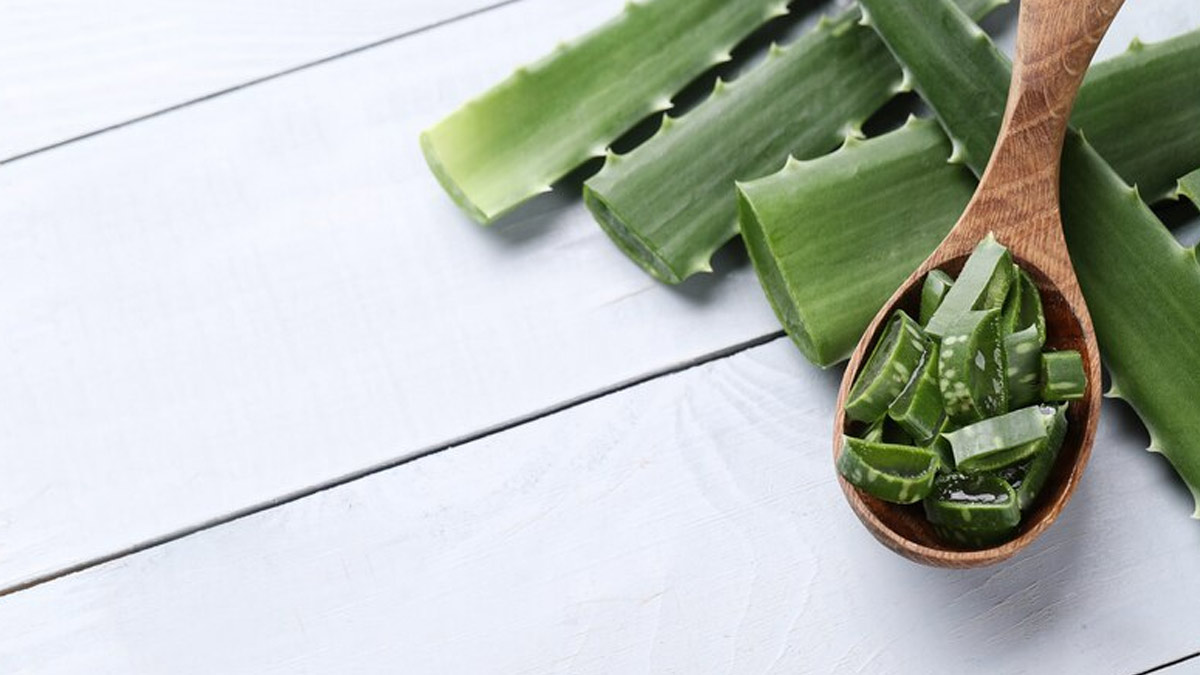
Aloe vera is widely known for its soothing, hydrating, and healing properties. From sunburn relief to acne treatment, this natural wonder has been a staple in skincare for centuries. However, before you apply aloe vera to your skin, there are some crucial things to consider to ensure safety and effectiveness.
Table of Content:-
In an exclusive interaction with the editorial team of Onlymyhealth, our expert, Dr Sanjeev Gulati, Department of Dermatology, Sharda Hospital - Noida, shared seven things to note before applying aloe vera. Here’s what you need to know and everything he shared with us.
1. Check for Allergies
Before using aloe vera, perform a patch test. Apply a small amount of aloe gel on your inner wrist or behind your ear and wait for 24 hours. If you experience redness, itching, or irritation, avoid using it on your face or body. Some people may have an allergic reaction to aloe, particularly those with sensitivities to plants in the Liliaceae family, such as garlic and onions.

2. Ensure It’s Pure Aloe Vera
Many over-the-counter aloe vera gels contain additives, preservatives, and artificial fragrances that may irritate sensitive skin. If possible, opt for fresh aloe vera from the plant or check ingredient labels to ensure purity. The fewer additives, the better.
Also Read: What Happens When You Have Only One Proper Meal A Day? Expert Explains
3. Know Your Skin Type
Aloe vera is generally safe for most skin types, but it may not be ideal for everyone. If you have dry skin, aloe vera's astringent properties might cause excessive dryness unless paired with a moisturiser. If you have oily or acne-prone skin, aloe vera can be beneficial due to its anti-inflammatory and antibacterial properties.
4. Be Aware of Possible Side Effects
Although aloe vera is often gentle on the skin, it may cause irritation or redness in some individuals. If you have any pre-existing skin conditions such as eczema or rosacea, consult a dermatologist before incorporating aloe vera into your routine.
5. Avoid Applying on Deep Wounds or Severe Burns
Aloe vera can help soothe minor burns and cuts, but it is not suitable for deep wounds or severe burns. In such cases, it may delay healing and increase the risk of infection. Seek medical attention for serious injuries.
Also Read: What Happens When You Have Only One Proper Meal A Day? Expert Explains
6. Check for Contaminants
If you’re using fresh aloe vera gel from a plant, ensure that the leaf is thoroughly washed before extracting the gel. Aloe leaves may carry dirt, bacteria, or latex residue (the yellow sap between the skin and gel), which can irritate. Always rinse the extracted gel before applying it to your skin.
7. Know the Best Ways to Use It
Aloe vera can be applied in different ways, such as a moisturiser, face mask, or spot treatment. However, to maximise benefits, consider pairing it with other skin-friendly ingredients. For example, combining aloe vera with honey can enhance hydration, while mixing it with tea tree oil may help with acne.
Bottomline
Aloe vera is a fantastic natural remedy for various skin concerns, but it’s essential to use it properly. Always check for allergies, ensure purity, and consider your skin type before application. If you experience any irritation, discontinue use immediately. When used correctly, aloe vera can be a valuable addition to your skincare routine, promoting healthy, radiant skin.
Also watch this video
How we keep this article up to date:
We work with experts and keep a close eye on the latest in health and wellness. Whenever there is a new research or helpful information, we update our articles with accurate and useful advice.
Current Version
